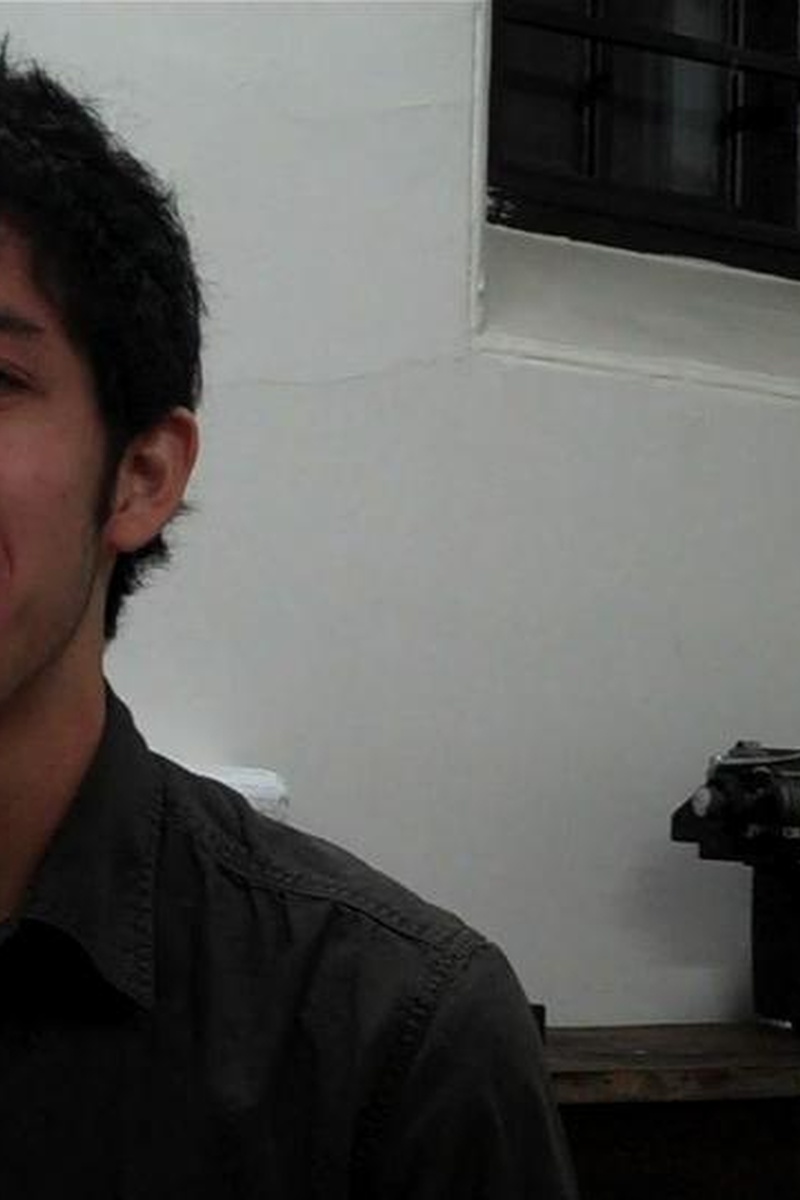Standing before Édouard Manet’s “The Street Singer” at the Museum of Fine Arts, Daniel A. Gross ’13 absorbed the painting’s details, analyzing the way “shadows were painted, the different textures in different parts of the paintings, the repeated angles and repeated shapes.”
“And I drew a picture of it—a very crude picture,” he adds, above the scrawled notes he had written on the back of a handout from class.
Those notes would become a four-page draft that culminated in the final paper that awarded him a spot in Exposé Magazine, the Harvard College Writing Program’s annual journal of writing.
Gross wrote the essay for his Expository Writing 20 section, “Re-Discovering the Impressionists,” which, like the broader program, uses a system of workshopping student essays. But Gross says that the techniques he used to write and revise his award-winning essay were largely introspective.
“In general, I didn’t find the processes or workshopping or talking one-on-one as helpful as systematically reexamining my own writing,” he says.
The Standing Committee on Writing and Speaking has, at least in part, recognized this concern on the part of students. It is currently in the process of evaluating how effectively Expos 20 fosters the growth of talented writers like Gross.
For the Class of 2016, the Expository Writing Program hopes to roll out a new course—Expos 30—for advanced writers. The program also plans to establish a revised expository writing placement exam, which is planned to be implemented for the Class of 2015.
Currently drafting a report that evaluates Expos 10, the committee will proceed to examine Expos 20 in a subsequent report.
Interviews with students like Gross—highly talented writers who say that they have passed through the program without having significantly gained from the experience—indicate that, if administrators wish to address the needs of students, they may need to substantively alter the introductory writing program.
THE EXPOS 20 EXPERIENCE
Unlike Expository Writing 10, which students nearly uniformly praised, Expos 20 has received far less acclaim and students offer mixed reviews of the more advanced course.
While Stephanie N. Regan ’13 says that she enjoyed Expos 10, Expos 20 did not live up to her expectations. “Expos 20 was just one of those classes that you had to get through,” she says.
Regan says that she was disappointed with her Expos 20 section on American sports culture, a topic that she says she loves. But the section presented the material in a way she describes as “crude.”
“Expos 20 was just a check-in to see if you can write,” she says. “When your essays were acceptable, they kind of just said, ‘here’s your grade.’”
But Jane Rosenzweig, director of Harvard College’s writing center, says she thinks some students are dissatisfied with Expos 20 because it does not live up to their expectations of what a writing course should be.
Read more in News
Redwall Series Author DiesRecommended Articles
-
Expos Revised: Addressing Varied Writing Skill LevelsAccording to The Crimson’s 1985 coverage of this expos class—then called Expos 5 but now known to students as Expos 10—writing program officials intended it to give some students for whom English is a second language, as well as students with significantly weaker writing backgrounds additional instruction to prepare them for college-level writing.
-
Faculty Review Honors, Expos 30In the first Faculty meeting of the new semester, Dean of Undergraduate Education Jay M. Harris introduced a proposal for a new advanced course, Expository Writing 30.
-
College Evaluates Expos 10Unlike its less popular counterpart Expos 20, which has garnered mixed reviews, students praise Expos 10 for offering a course structure that allows them to think critically and write with sophistication.
-
Evaluating ExposExpos can only maintain its relevance within the modern liberal arts curriculum if it, like all long-standing traditions, accepts a certain amount of re-evaluation and renovation.
-
Freshmen Conduct Original Research in Expository Writing CoursesAs the deadlines for Expository Writing 20 final papers approach, freshmen in social science-themed sections are increasingly using surveys and interviews to conduct original research on the Harvard community.
-
Seeking Practical SkillsI concentrate in Social Studies. I have taken coursework that counts for the “Social Analysis” core (may it rest in peace). But in reality, while I have improved my ability to study and analyze social things, I am bad at participating in them myself.














